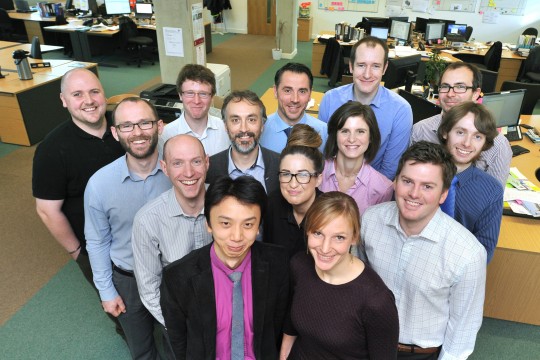Eadon Consulting, a small company based at the Advanced Manufacturing Park near Sheffield, have won funding from the UK’s Innovation Agency to develop a new system for decommissioning aging nuclear facilities. Eadon will lead a consortium of companies to pioneer a faster, cheaper, cleaner and safer approach to nuclear decommissioning.

Company Director, James Hill, says:
“As a small company of specialist engineers we are ideally placed to solve problems, our size allows us to
innovate and quickly develop new ideas. This funding from the UK’s Innovation Agency unlocks our potential,
allowing us to really focus on the challenges of decommissioning nuclear facilities. Collaborating with other
small companies means that we can tap into a wealth of knowledge and experience from lots of different
industries and pick out all the most useful bits. Our immediate focus in on decommissioning the nuclear site
at Sellafield, but the systems we are developing have huge potential for export all over the world.”
Background
Decommissioning the Sellafield nuclear site is a hugely onerous task with an estimated cost of £85 Billion. Innovate UK, the UK’s Innovation Agency, have funded a competition to develop new technologies which will enable faster, cheaper and safer nuclear decommissioning.
Eadon consulting is an engineering company specialising in the design and analysis of complicated industrial machines and large moving structures. Typical projects include lifting equipment for the nuclear industry, opening bridges, gantries which crawl up suspension bridge cables and large lock gates. Eadon was founded in Sheffield 9 years ago and now employs 18 people.
Eadon’s team for the competition includes: offshore engineering experts “Red Engineering”; scanning and data manipulation experts “PES Scanning”; Sellafield construction experts “Westlakes Engineering”; Sheffield University’s “Nuclear Advanced Manufacturing and Research Centre”; and the famous ship builder and fabricator “Cammell Laird”.
The project will develop a “Versatile Decommissioning System”. The system will use laser scanning and computer based modelling to accurately plan complicated tasks, coupled with new equipment and tools specifically suited to the challenges of nuclear decommissioning.
The project will start in August and run for 3 months. Work will include developing concept designs for new equipment and exploring new techniques for planning and visualisation of decommissioning tasks. On successful completion of the first phase Innovate UK will release additional funding to develop full working prototypes and start trialling the new system.
